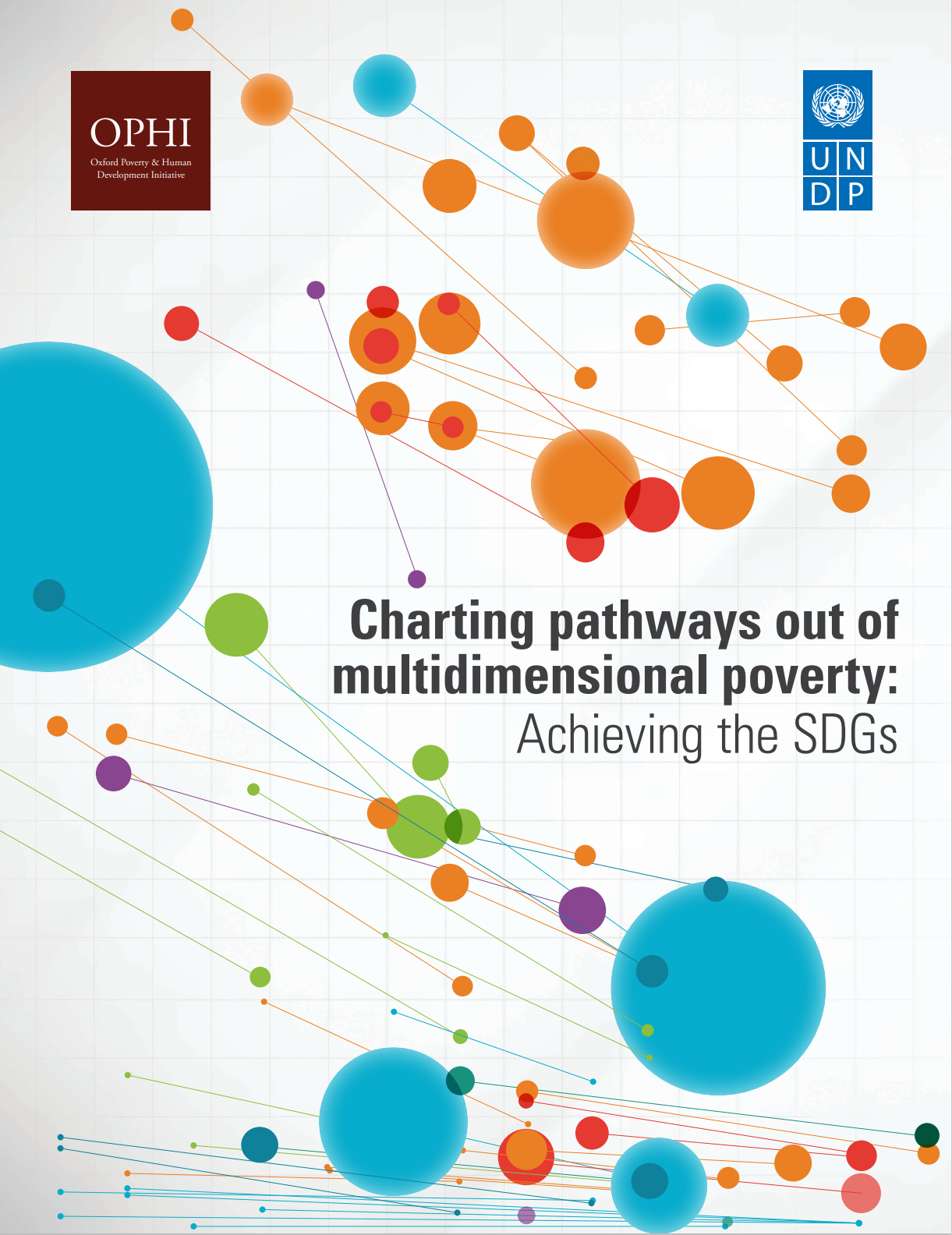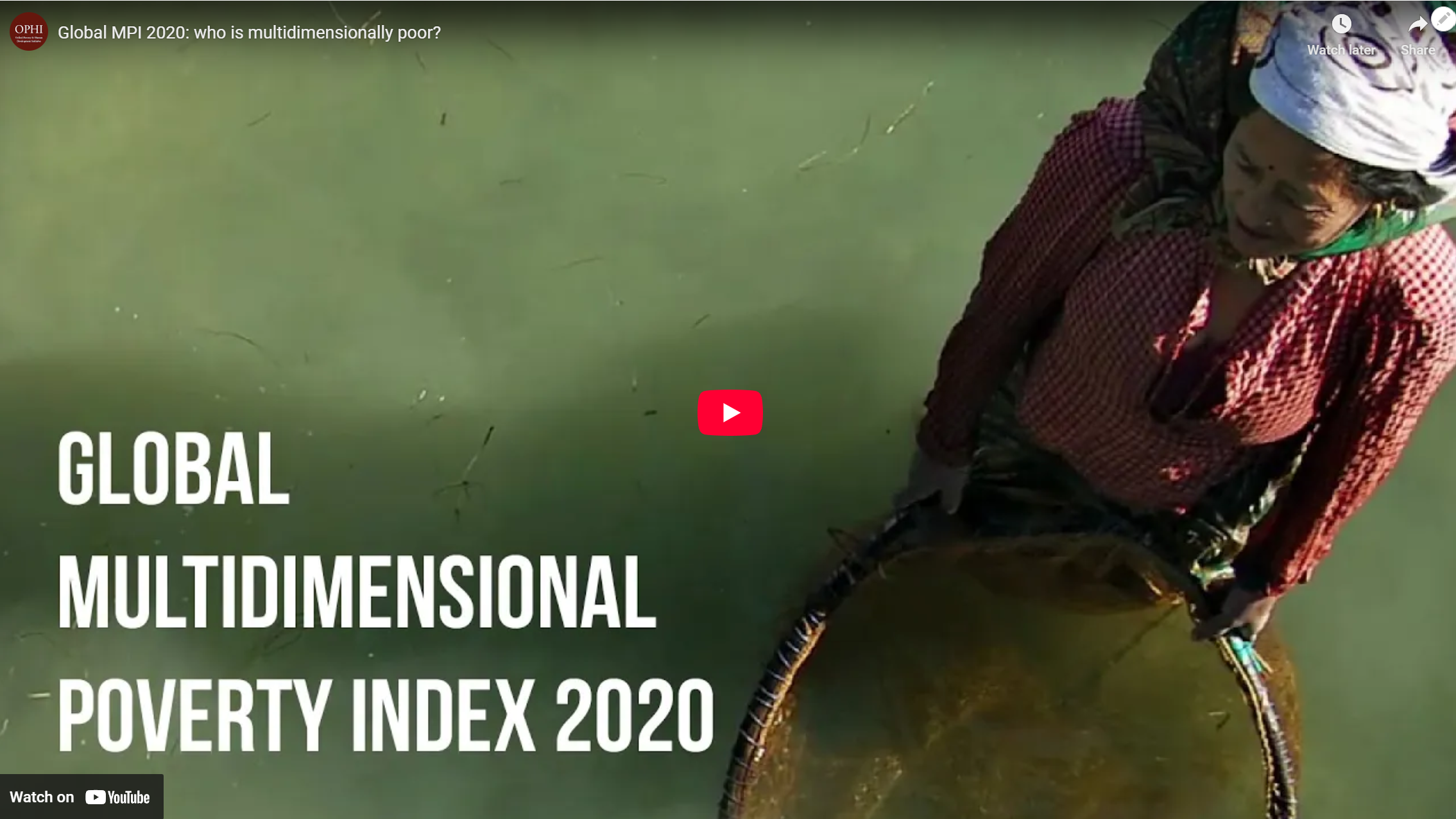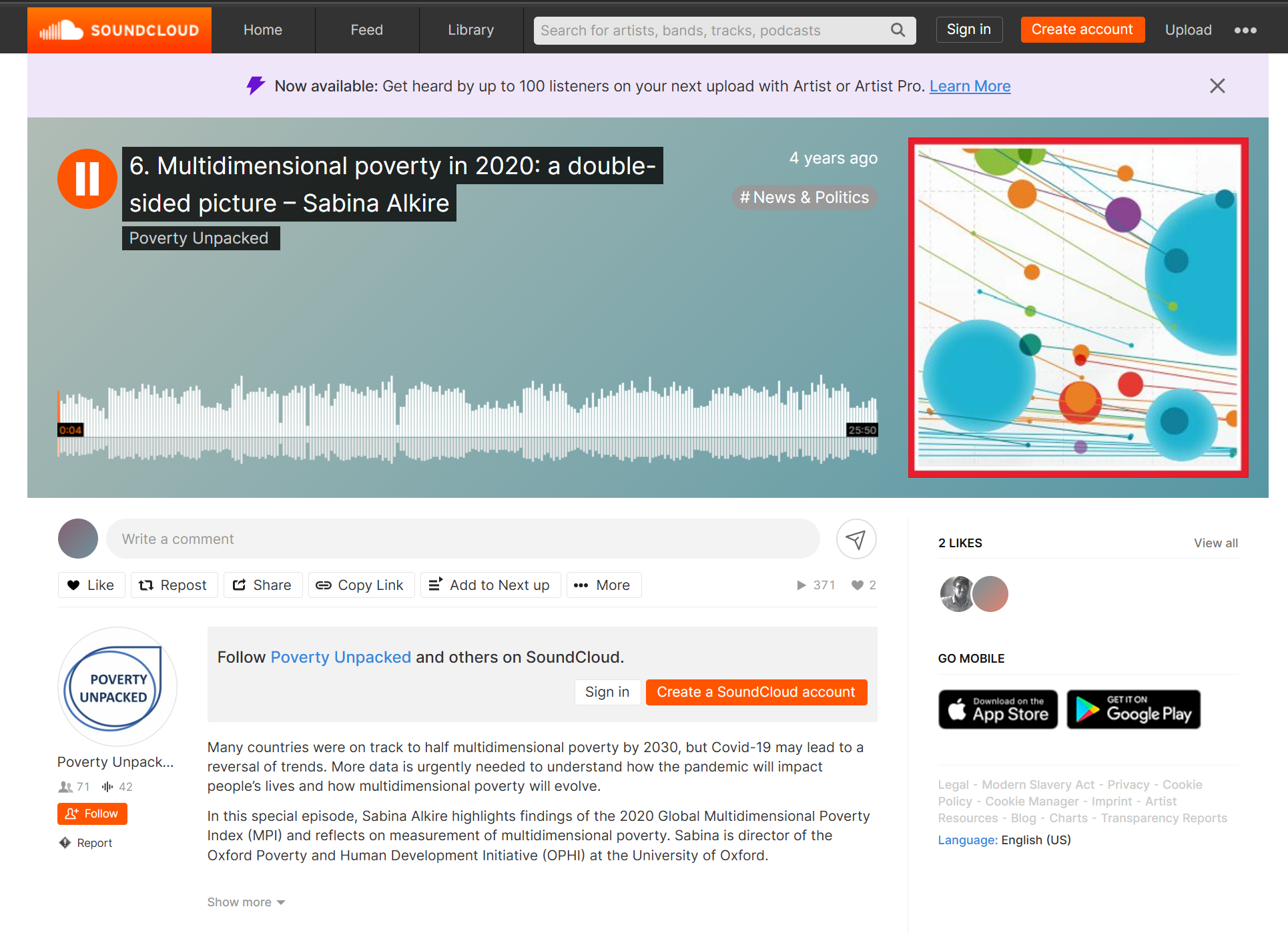Global MPI 2020
The 2020 update of the global Multidimensional Poverty Index (MPI) covers 107 countries—28 low income, 76 middle income and 3 high income—and 5.9 billion people in developing regions. MPI values and data for the MPI’s component indicators are also disaggregated by age group, for rural and urban areas and for 1,279 subnational regions. It provides a comprehensive picture of global trends in multidimensional poverty, covering 5 billion people and 75 of the 107 countries included in the global MPI.
Our joint report
The joint OPHI and UNDP global MPI report, Global Multidimensional Poverty Index 2020 – Charting Pathways out of Multidimensional Poverty: Achieving the SDGs, presents the key findings of the global MPI 2020 and the first comprehensive study of harmonized MPI trends, also known as Changes over Time, indicating that 65 out of 75 countries reduced MPI significantly.
It explores whether before the pandemic countries were on or off track to halve multidimensional poverty by 2030 – a challenge set by SDG 1 – and finds 47 countries were on track. In the context of the current pandemic, the report simulates possible impacts of COVID-19 on multidimensional poverty, finding that, if unaddressed, it could set progress back by up to a decade. Finally, linkages between the global MPI and other SDG indicators related to climate, work, immunization, higher education, and urban/rural areas bring together multiple perspectives on pressing issues in development. Our analysis covers the significant progress in poverty reduction made by some countries in the past twenty years, but it is clear that decisive action is needed more than ever to sustain progress and ensure no one is left behind.
- Citation: OPHI (Oxford Poverty and Human Development Initiative) and UNDP (United Nations Development Programme) (2020). Global Multidimensional Poverty Index 2020 – Charting Pathways out of Multidimensional Poverty: Achieving the SDGs. United Nations Development Programme and Oxford Poverty and Human Development Initiative.
Our data
The global MPI results are presented in the following Data Tables.
Oxford Academic Licence
Our Country Briefings
The global MPI Country Briefings present the country-specific results for the 107 countries in this year’s global MPI.
Each profile includes:
- the level of multidimensional poverty, its incidence and intensity;
- comparisons of the global MPI incidence with $1.90 a day and national monetary measures;
- breakdowns by indicators;
- disaggregation by urban/rural areas and subnational regions; and
- studies of the distribution of deprivation scores that together make up the intensity of poverty across multidimensionally poor people.
Of the countries analysed, 98 have poverty data at the subnational level, covering 1,279 regions, and this information is shared and mapped.
Changes over Time Country Briefings 2020
For the first time we offer a second series of Country Briefings on the study of poverty trends for the countries included in the Changes over Time analysis. These briefings explore harmonized trends (indicated by MPIT) in poverty between two time points studied in each country. They cover 80 countries within the global MPI. Detailed results are presented in Table 6 and defined in the MPI Methodological Note 50.
Each profile includes:
- the change in the MPIT, incidence, and intensity of multidimensional poverty;
- changes in censored headcount ratios for each indicators;
- absolute and relative changes in MPIT and incidence across subnational regions;
- absolute reduction in MPIT across subnational regions;
- absolute reduction in MPIT across age groups; and
- the contribution of each indicator to MPIT in national, urban, and rural areas across the years.
This is the first global analysis of trends in multidimensional poverty covering five billion people. Find out more about the Changes over Time analysis in the MPI Methodological Note 50.
Citation: Oxford Poverty and Human Development Initiative (OPHI), (2020). ‘[Name of country] Country Briefing’, Multidimensional Poverty Index Data Bank. Oxford Poverty and Human Development Initiative, University of Oxford.
Documentation
Technical files
The do-files are the computational files that were used to create the MPI from each dataset in Stata.
Events
Videos and Podcasts
News
OPHI and UNDP Press Release
Media Coverage Highlights
- Project Syndicate: Keeping Poverty Reduction Front and Center






